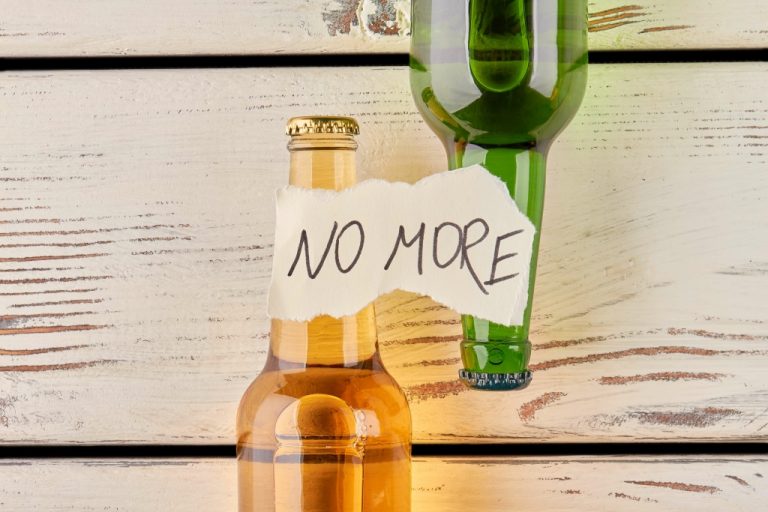What Is Sober Curious? Inside the Alcohol-Free Movement
But as Gen Z demonstrates, fun doesn’t have to come from alcohol—it can come from connection, creativity, and presence. Economic realities—such as student debt, inflation, and living costs—shape preferences. Gen Z tends to see alcohol as a discretionary expense, with many abstaining to save money for travel, investing, or other goals. In Australia, tradespeople in Gen Z reported choosing fitness, productivity, and sobriety as cultural norms—often citing savings and peer support. Mintel reports that nearly two-thirds of 18–24-year-olds in Britain worry about alcohol’s emotional toll and seek mindful drinking.
Better mental health

For every person, the granular details of a “sober curious” journey will depend on their goals, motivations and relationship with alcohol to find what feels sober curious right and supports the best version of themselves. Generation Z is reshaping drinking norms with a mindset grounded in self-awareness, wellness, and sustainability. The “sober curious” movement isn’t about flaming prohibition—it’s a conscious, personalized approach to alcohol—often marked by moderation, reflection, and vibrant alternatives. The term “sober curious” simply means you are asking questions about the role of alcohol in your life.
- “I always thought, well, I need to have a drink to be able to socialize, but it’s been a really fun challenge to be able to go to these events without drinking and seeing what I would do naturally to socialize with people,” she said.
- After drinking too much alcohol before bed, you may wake up feeling groggy, unrefreshed, and sometimes cranky, which can decrease your productivity throughout your day and negatively impact your mood and how you interact with people.
- A simple, “no, thanks” should be sufficient, but if it isn’t you may want to have a backup plan in place regarding how to tell people you don’t drink.
Find Your Bezzy Community
A growing number of “sober curious” people are starting to take a closer look at the role alcohol plays in their lives. Sober curious simply means that you’ve chosen to avoid alcohol for personal or wellness reasons. It involves curiosity about the reasons fueling your desire to drink and the way alcohol affects your life. If you see the term sober curious on a person’s Tinder profile, you can likely expect that they will be more interested in dating activities that don’t rely on alcohol (bars, clubs). Sober curious means that they are strongly interested in exploring the sober lifestyle to some extent. This doesn’t mean that they will necessarily say no to a glass of wine at dinner (although some may), but they probably don’t want to go out for drinks.
How to be ‘sober curious’ and limit an alcohol use disorder or over-consumption
Emotionally, the sober curious lifestyle can lead to deeper self-awareness and personal growth. Without alcohol to numb or distract from emotions, individuals are more likely to confront their feelings and work through them in a healthy way. This emotional resilience can strengthen relationships, improve self-esteem, and lead to a more authentic and satisfying life.

The movement towards being sober curious has gained significant attention due to its numerous health benefits. Individuals who engage in this lifestyle often report improvements in both physical and mental health. The “sober curious” or “sober sometimes” movement started as a challenge for those who felt they’d partied a little too hard over New Year’s weekend. First there was “Dry January,” when people could brag on social media about how they were taking a break from booze. Now there’s “Dry July” and even “Sober September.” And the movement has spread across the U.S., with people challenging each other to see what life is like without alcohol and share in that experience. Not too long ago, a group of women in a bar who were not drinking alcohol would have seemed kind of strange.
Sober Curious: A Growing Trend
- From casual to crazy, these spots will keep you hydrated and entertained.
- Alcohol is a depressant that can negatively affect mood, cognition, and mental health.
- At 12 South Recovery, we offer addiction treatment services designed to help individuals reclaim control of their lives and address substance use in a healthy, supportive environment.
Start gathering information wherever you can, whether that’s reading an article on the sober curious movement, doing a web search or looking at things on YouTube. The more information you read on the benefits of cutting back and tips on how other people are doing it, the more motivated you will likely become to dive in. For some people, the sober curious journey helps them realize that alcohol is affecting their health, prompting them to seek addiction treatment for a healthier, alcohol-free life.
First For Women

Kicking booze doesn’t mean you’re relegated to a life of water and soda. There are increasingly more “dry drinks” becoming available for the sober and sober curious that have great flavor and are fun to drink. Being sober curious in a world that sometimes seems obsessed with alcohol can be easier said than done.
The “Sober Curious” Movement
It’s all thanks to a recent movement where people experiment with a “sober curious” lifestyle, more deeply analyzing their own relationships with alcohol and the health and wellness benefits of moderation. Short term or not, sober curiosity can still promote mindful drinking habits and lasting Sober living house lifestyle changes. It’s absolutely OK to need extra support while addressing drinking habits. People in the sober curious community don’t necessarily overlap with those in the recovery community.
All across the country, individuals are opening sober bars filled with mocktails and non-alcoholic drinks such as kombucha. One reason sober bars are popping up across the country is that they remove the pressures and dangers of alcohol while providing a space for socialization and community, which all humans crave. “The movement pushes back at the normalization of heavy drinking and stereotypes that those who do not drink are less social or have less fun.” Unlike people who stay sober because of dependency or addiction, “sober curious” people may not necessarily meet the criteria for an alcohol use disorder or intend to give up alcohol permanently. Ever since his light-bulb moment, Shufelt has been dedicated to creating full-flavored, nonalcoholic beers.
Suddenly, I had extra cash for the things that genuinely made me happy, like trips, self-care splurges, or even just saving for something special. When you stop drinking, you have to face tough and scary situations without alcohol and that helped me grown an innate confidence that’s stayed with me. I am more resilient as I drank to get through periods of stress, heartbreak or sadness, which meant I tried to avoid them – and you can never avoid them really! Without alcohol, I actually have to face those things so I feel stronger in http://yummy.ir/index.php/2025/03/25/ketamine-addiction-signs-symptoms-effects-and-help-3/ myself to be able to deal with them if they arise again.

